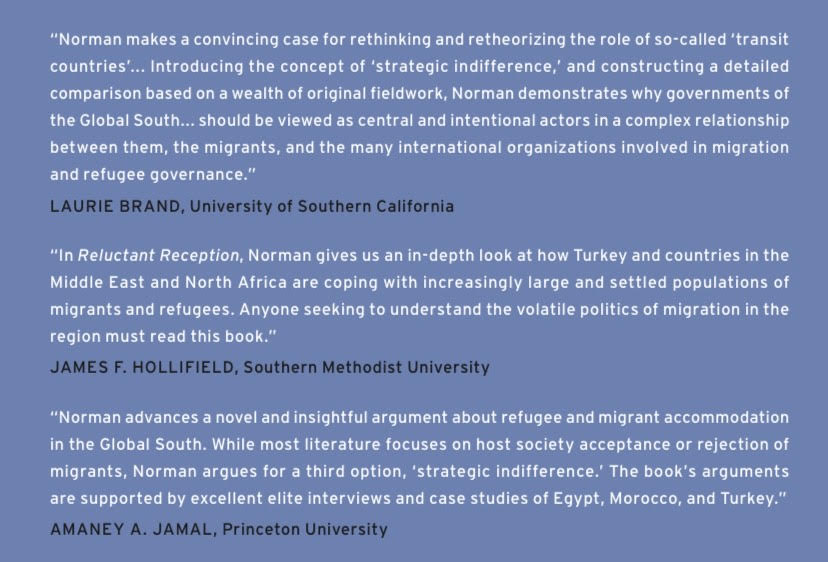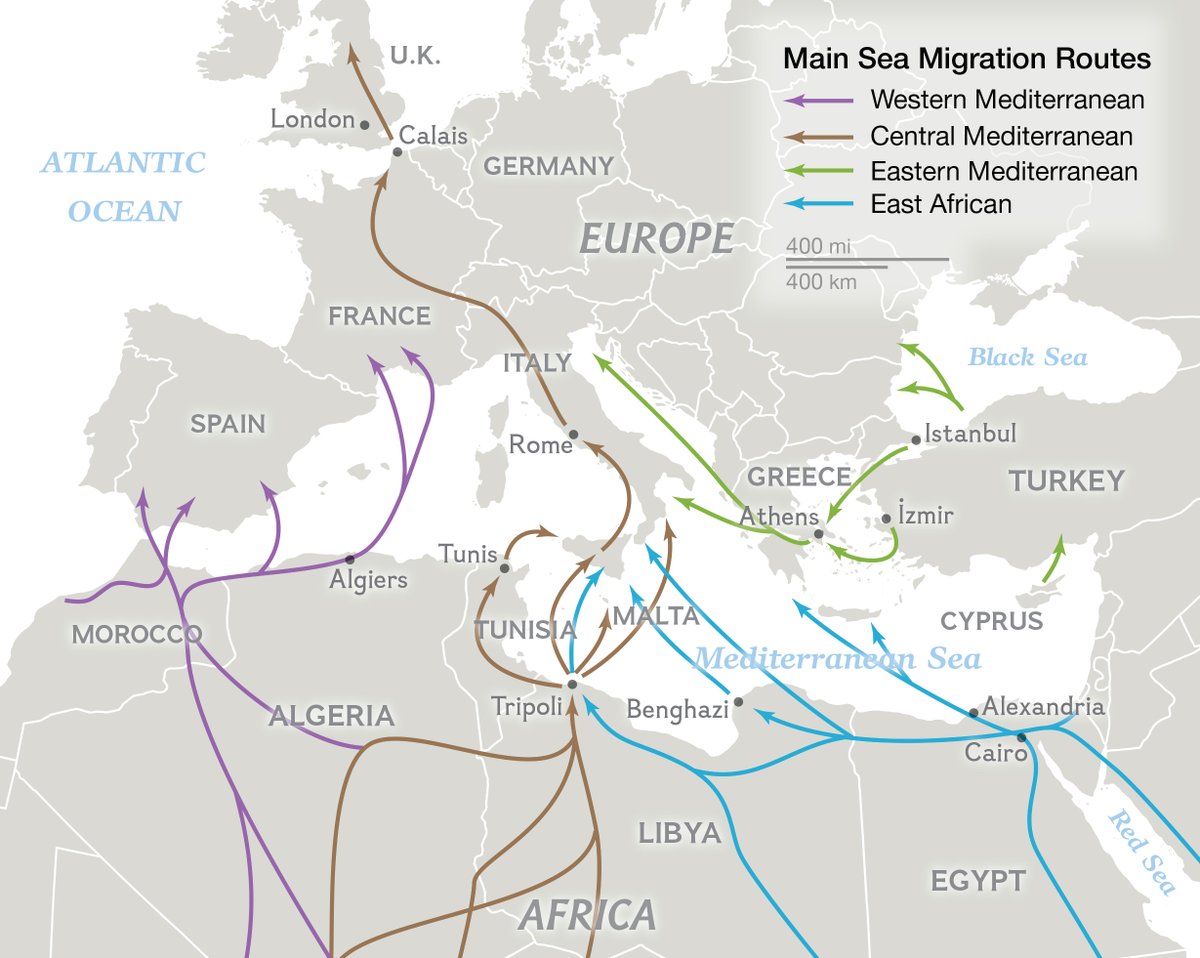Okay, it& #39;s October & I& #39;m back on here, mostly to announce that my book, Reluctant Reception, has a cover (thanks @ganzeer!), an approx publication date of Nov 2020, & a website for pre-order: https://www.cambridge.org/us/academic/subjects/politics-international-relations/middle-east-government-politics-and-policy/reluctant-reception-refugees-migration-and-governance-middle-east-and-north-africa?format=PB">https://www.cambridge.org/us/academ... Available for the (relatively) reasonable price of $30 (1/12)
Here& #39;s the gist: Sometimes countries don& #39;t react with welcoming policies toward #migrants & #refugees* but they also don& #39;t react with outright hostility or exclusion. Instead, there& #39;s a third option, what I call & #39;strategic indifference.& #39; (2/12)
* Not always clear-cut categories
* Not always clear-cut categories
Indifference may seem like the absence of policy altogether, but I argue that it& #39;s intentional & that states aren& #39;t weak or lacking capacity but are (surprise!) strategic. (3/12)
Using indifference to manage migrants & refugees staying for long periods of time means that the state doesn& #39;t have to expend many resources because IOs step in to handle things, offering the state tangential benefits like development funding & a reputational boost. (4/12)
My book looks at 3 countries to develop this theory - #Egypt, #Morocco and #Turkey - all of which saw increased numbers of migrants & refugees staying for longer periods in the 1990s & 2000s. (5/12)
By allowing migrants and refugees to integrate locally into large informal economies, & by permitting international and domestic NGOs to provide basic services, #Egypt, #Morocco, and #Turkey derived international credibility while only dedicating minimal state resources. (6/12)
I also look at why these countries moved away from indifference in the 2010s. Egypt turned more exclusionary as migration securitized, while Morocco & Turkey adopted more liberal frameworks to pacify domestic human rights actors & enhance economic and diplomatic relations. (7/12)
#Europe& #39;s external migration policy since Schengen is of course a huge part of this story, transforming countries of & #39;transit& #39; into countries of settlement by default. I spend the final two chapters examining the impact of the 2015 European & #39;crisis& #39; on MENA host states. (8/12)
But even though I focus on states in #MENA, the arguments in this book can apply to other countries like Indonesia, Mexico or Guatemala which are being transformed into buffer zones (and thus countries of migrant settlement) on behalf of #Australia or the #US respectively. (9/12)
And while I talk a lot about state policy, this is ultimately a story of #migrants & #refugees. Their lives, struggles, and accomplishments – as well as the policies they live under – are as worth understanding as those who successfully make it across #Western borders. (10/12)
If you made it this far, thank you! Here& #39;s the chapter list to give you a better idea of the book& #39;s content: (11/12)
And as a reward for finishing this thread, here& #39;s my 10 week old baby who& #39;s just learned to hold his head up. I blame him and his sleep schedule over the last 2.5 months for any typos in the above thread.  https://abs.twimg.com/emoji/v2/... draggable="false" alt="🙃" title="Auf den Kopf gestelltes Gesicht" aria-label="Emoji: Auf den Kopf gestelltes Gesicht"> (12/12)
https://abs.twimg.com/emoji/v2/... draggable="false" alt="🙃" title="Auf den Kopf gestelltes Gesicht" aria-label="Emoji: Auf den Kopf gestelltes Gesicht"> (12/12)

 Read on Twitter
Read on Twitter



 (12/12)" title="And as a reward for finishing this thread, here& #39;s my 10 week old baby who& #39;s just learned to hold his head up. I blame him and his sleep schedule over the last 2.5 months for any typos in the above thread. https://abs.twimg.com/emoji/v2/... draggable="false" alt="🙃" title="Auf den Kopf gestelltes Gesicht" aria-label="Emoji: Auf den Kopf gestelltes Gesicht"> (12/12)" class="img-responsive" style="max-width:100%;"/>
(12/12)" title="And as a reward for finishing this thread, here& #39;s my 10 week old baby who& #39;s just learned to hold his head up. I blame him and his sleep schedule over the last 2.5 months for any typos in the above thread. https://abs.twimg.com/emoji/v2/... draggable="false" alt="🙃" title="Auf den Kopf gestelltes Gesicht" aria-label="Emoji: Auf den Kopf gestelltes Gesicht"> (12/12)" class="img-responsive" style="max-width:100%;"/>


